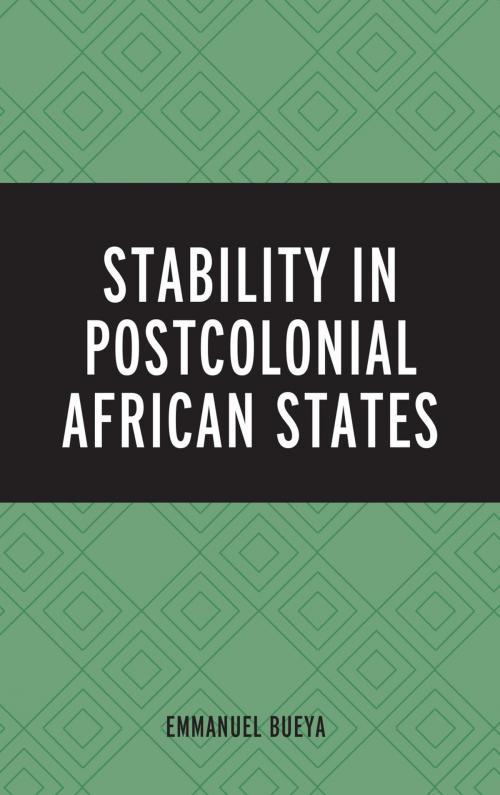Stability in Postcolonial African States
Nonfiction, Religion & Spirituality, Philosophy, Political, Social & Cultural Studies, Political Science, International| Author: | Emmanuel Bueya | ISBN: | 9781498542913 |
| Publisher: | Lexington Books | Publication: | November 22, 2017 |
| Imprint: | Lexington Books | Language: | English |
| Author: | Emmanuel Bueya |
| ISBN: | 9781498542913 |
| Publisher: | Lexington Books |
| Publication: | November 22, 2017 |
| Imprint: | Lexington Books |
| Language: | English |
This book explores the instability of the African postcolonial state and demonstrates that such a fundamental crisis can be solved only through discourses and practices that are designed beyond the Westphalian model of the modern state and out of the neo-patrimonialistic system of African governance. The challenge of instability will not be overcome by rebuilding the African nation-state undermined by social contradictions and complex emergencies; rather stability will be achieved by opening a public space of agonistic democracy that is supported mainly by an overlapping consensus on justice. The author argues that by reading critically, the African philosophy of solidarity is contradicted by structural violence and inequality. The political instrumentalization of kinship provokes the exclusion of minorities, the marginalization of masses, and the instability of the entire society. Governance is reduced to mere conflict management. The solution of legitimate violence becomes another version of the problem of institutional incapacity. The author's contention is people are the ultimate and permanent agents of stability, and the ground of stability must not be a strong state, but the politics of reciprocity and union among people that implies a sense of justice in the power sharing and in the decision making process.
This book explores the instability of the African postcolonial state and demonstrates that such a fundamental crisis can be solved only through discourses and practices that are designed beyond the Westphalian model of the modern state and out of the neo-patrimonialistic system of African governance. The challenge of instability will not be overcome by rebuilding the African nation-state undermined by social contradictions and complex emergencies; rather stability will be achieved by opening a public space of agonistic democracy that is supported mainly by an overlapping consensus on justice. The author argues that by reading critically, the African philosophy of solidarity is contradicted by structural violence and inequality. The political instrumentalization of kinship provokes the exclusion of minorities, the marginalization of masses, and the instability of the entire society. Governance is reduced to mere conflict management. The solution of legitimate violence becomes another version of the problem of institutional incapacity. The author's contention is people are the ultimate and permanent agents of stability, and the ground of stability must not be a strong state, but the politics of reciprocity and union among people that implies a sense of justice in the power sharing and in the decision making process.















